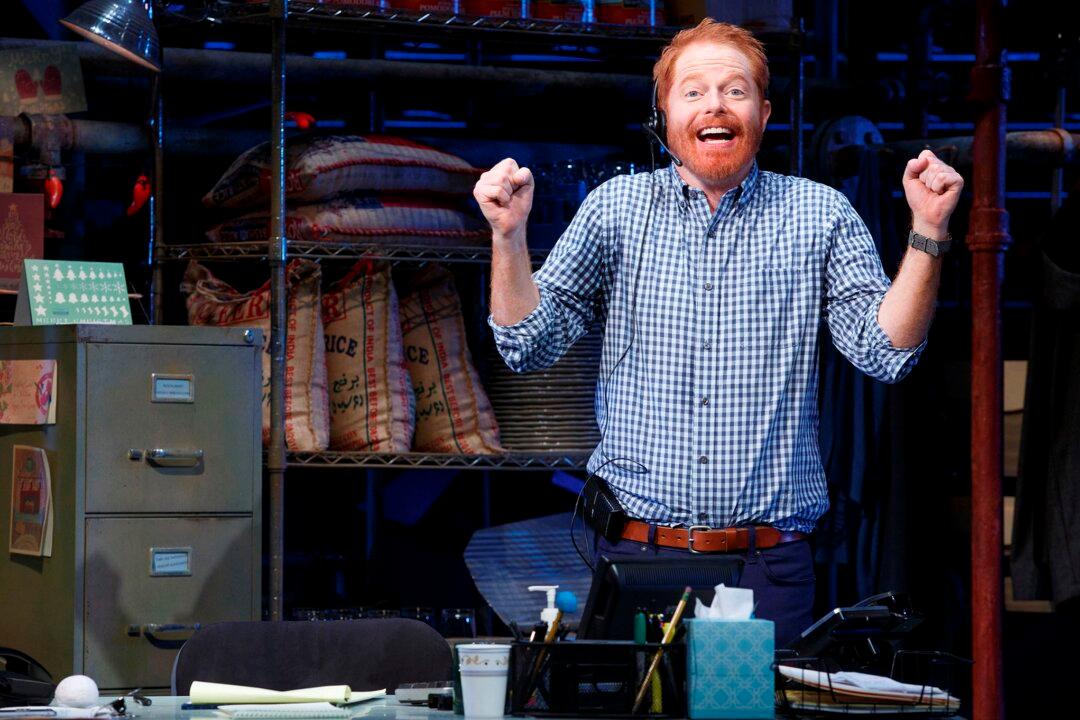NEW YORK—As the Broadway revival of the one-person show “Fully Committed” makes clear, it’s the tiny cogs in a machine that keep everything turning. Or, to put it in human terms, it’s people such as secretaries, mailroom workers, and hotel wait staff who prevent mistakes that might otherwise reverberate up the chain of command and cause a breakdown in the system. These folks rarely get enough credit for doing so.
One such person is Sam (Jesse Tyler Ferguson), a wannabe actor. He works in the cramped, windowless basement of a super trendy New York restaurant and takes calls from a myriad of potential diners begging, demanding, and cajoling for a table—despite the fact that, in terms of reservations, the place is continually fully committed.
The show is a literal tour de force for Ferguson.





